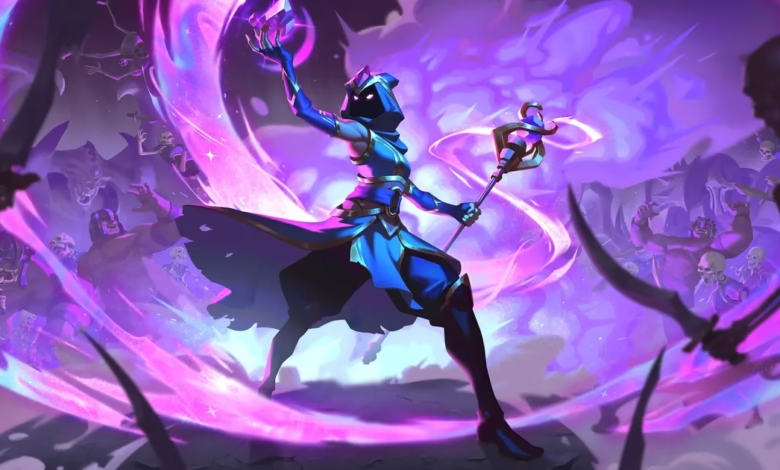How Game Smithing Rode the Vampire Survivors Success Wave

▼ Summary
– Soulstone Survivors launched in Steam Early Access in 2022, capitalizing on the hype around Vampire Survivors, and has since sold over 1 million copies with a Very Positive rating.
– Allan Smith, founder of Game Smithing, developed Soulstone Survivors quickly by reusing code from an earlier project, Rogue Soulstone, to catch the trending wave of similar games.
– Smith worked 20-hour days to develop the game while balancing a full-time job, driven by the opportunity and player demand, despite the personal toll.
– The game’s success was fueled by organic growth on Steam, positive feedback loops, and community engagement, though its 1.0 launch in 2025 saw less hype due to market saturation.
– Game Smithing plans to revive Rogue Soulstone with lessons learned from Soulstone Survivors, while acknowledging the challenges of standing out in a crowded market.
Timing proved everything for Game Smithing’s breakout hit Soulstone Survivors, which launched just as players were craving more experiences like Vampire Survivors. The studio’s founder, Allan Smith, didn’t plan to ride a trend, he simply recognized an opportunity and moved fast. The result? Over a million copies sold and a thriving community that propelled the game to “Very Positive” status on Steam with 21,000 reviews.
Smith’s journey into game development wasn’t straightforward. Originally from Brazil, he struggled early on to break into the industry, eventually co-founding a mobile studio out of necessity. “Freemium mobile games felt like the only option back then, but it wasn’t fulfilling,” he admits. After relocating to the UK and working at Bossa Studios during the turbulent closure of Worlds Adrift, he found himself at another mobile studio, until it pivoted to crypto. That’s when he decided to go solo.
Working nights and weekends, Smith initially developed Rogue Soulstone, a roguelike inspired by favorites like Risk of Rain. But when Vampire Survivors exploded in popularity, he saw a chance to pivot. Reusing existing code, he crafted Soulstone Survivors in weeks, a stripped-down, addictive take on the emerging genre. The demo went live on a Wednesday night. By morning, 1,000 players were already testing it.
The rapid success came at a cost. Smith pulled 20-hour days, balancing his day job with development. “I’d go three days without sleep,” he recalls. His wife’s support was crucial, even as the workload left little room for anything else. The grind paid off, players flocked to the game, streamers picked it up, and wishlists skyrocketed. Organic discovery on Steam drove 95% of the traffic, proving that a well-timed, polished experience could thrive without heavy marketing.
Unlike studios chasing radical originality, Smith embraced iteration. “Trying to invent something entirely new is incredibly risky,” he argues. Instead, Soulstone Survivors refined the formula with deeper character builds and bullet-hell intensity. The studio’s active Discord presence helped build trust, countering assumptions that it was just another cash-in.
By the time the full 1.0 version launched in June 2025, the hype had faded. The genre had become oversaturated, and influencers moved on. Still, Smith considers the project a success, it funded Game Smithing’s growth to a 12-person team. Now, they’re revisiting Rogue Soulstone with fresh experience.
The lesson? Speed and adaptability matter as much as vision. Smith caught lightning in a bottle by recognizing a trend and executing fast. Whether his next project replicates that success remains to be seen, but one thing’s certain, he’s ready to chase the next wave.
(Source: Games Industry)





